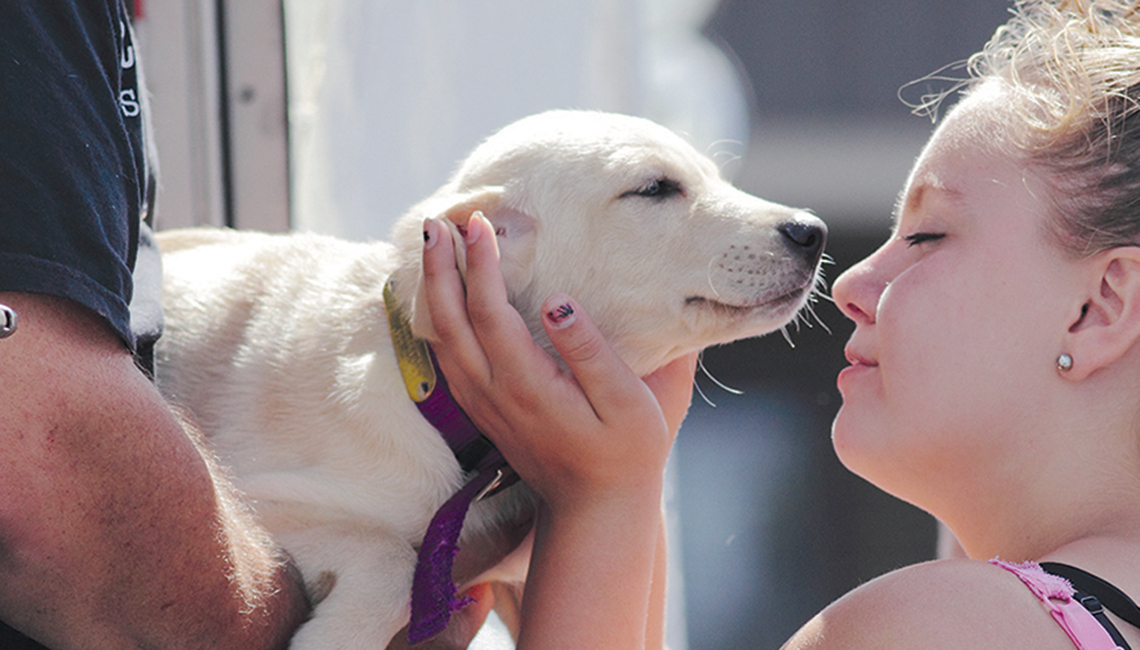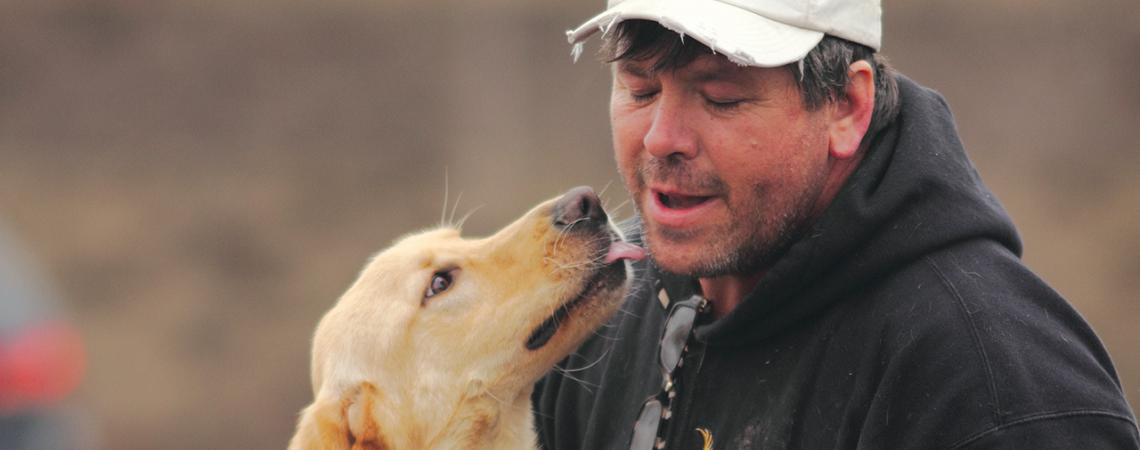On 28 Mondays a year, Greg Mahle climbs into his semitractor-trailer in Zanesville and heads south on a mission through Texas, Louisiana, and Mississippi to give formerly homeless dogs the loving homes they deserve.
Zanesville’s Greg Mahle has traveled thousands of miles across the country to provide homes to dogs.
One of his first stops on the weeklong, 4,200-mile journey is Shaggy Dog Rescue in Houston, where he finds dogs waiting for him that have been saved from overcrowded shelters across the Lone Star State.
Mahle gets the dogs into kennels, which are then secured — three shelves high — along the walls of his custom-built, air-conditioned trailer. Though they don’t realize it, the dogs have taken their first step toward much better lives, thanks to Rescue Road Trips, the nonprofit organization Mahle founded.
From Houston, Mahle and his relief driver travel to shelters and veterinary clinics in Louisiana and Mississippi to pick up more dogs. Mahle says that a typical run carries “80 to 100 dogs and sometimes a few cats.”
All of the dogs are healthy and attractive. Labs, assorted terriers, German shepherds, Chihuahuas, beagles and other hounds, and mixed-breeds large and small all get quick goodbye hugs from shelter volunteers or foster parents who have cared for them, and Mahle continues on his way.
He drives the dogs to Connecticut and other northern states, where adoptive families or foster parents will be waiting for all of them.
On Thursday evening of mission week, the big white truck — emblazoned with “Rescue Road Trips Saving Lives Four Paws at a Time” on its sides — stops near Birmingham, Alabama, where volunteers are waiting to ease the stress of the long journey with a walk and cuddle for each dog. They get another walk, treats, and attention from more volunteers on Friday evening in Allentown, Pennsylvania.
From both stops, volunteers post photos of the dogs on the Rescue Road Trips Facebook page. Social media lets the dogs’ former caretakers in the South see how the dogs are doing on the trip, while giving a sneak peek to the people who will foster or adopt them in the North.
The dogs are never left unattended. Mahle and his relief driver take turns sleeping — Mahle sleeps in back with the dogs. Finally, on Saturday morning, the truck rolls in to Rocky Hill, Connecticut, for “Gotcha Day,” which is livestreamed on Facebook. People shed happy tears as Mahle announces each dog’s name to the waiting crowd and Facebook viewers all over the country. Kids grin and hold “welcome home” signs they’ve made for their new dogs.
“I get most of the glory and recognition, but it’s not just me,” Mahle says. “Adella [his wife] is every bit as invested as I am. So are Debbie [his mother-in-law] and the office staff and the volunteers. Rescue is a big chain with the final link being the adopter. We all have to pull together to get this dog to its forever home.”
Mahle started transporting rescued dogs from southern states to the North in 2005, when he received a distress call from his sister. She operates Labs4Rescue in Connecticut, a group of volunteers who foster Labrador retrievers until carefully screened families adopt them.
When the group’s driver couldn’t finish a trip, Mahle stepped in to drive the van full of Labs the rest of their way. He began driving more often and eventually started transporting dogs for other rescue organizations, too.
For Mahle, the most difficult part of each trip is “the grueling labor. I leave on Monday and don’t get home until Sunday. Walking dogs, taking care of them, lifting them in and out of kennels, loading supplies — it’s hard work.”
That’s balanced, though, by the best part of his long week: “the thousand dog kisses I get on every trip,” he says. “Just getting to put my hands on the dogs, to feel their love. You build attachments. They have feelings for me, and I have feelings for them.”
The days between trips are busy, too. Cleaning and sanitizing the trailer, booking dogs from various rescue groups, and paying endless bills (salaries, license fees, supplies, truck maintenance and fuel, etc.) takes a lot of time.
Mahle says that despite the thousands of dogs he and other groups have transported from overcrowded southern shelters to loving homes in the North, the problem of homeless dogs isn’t decreasing and “won’t be solved in my lifetime.” Because that’s too overwhelming to think about, Mahle explains, “I focus on the small victories, not the large problem. I think about how rescues are making a tremendous difference to the individual dogs.”










